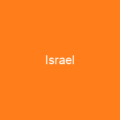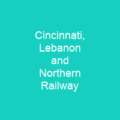Lebanon: A Country with a Rich Past and Troubled Present
Lebanon is a country in West Asia, bordered by Syria, Israel, and the Mediterranean Sea. It has a population of over five million and an area of 10,452 square kilometers. Imagine Lebanon as a vibrant tapestry woven with threads from thousands of years of history—threads that have been interwoven into its very fabric. From ancient Phoenician seafarers to the Crusaders and Ottoman Turks, each civilization has left an indelible mark on this land.
The Ancient Roots
Archaeologists discovered prehistoric huts with crushed limestone floors in Lebanon dating back over 7,000 years. These humble beginnings set the stage for a rich cultural heritage that continues to thrive today. The Phoenicians, those seafaring people who spread across the Mediterranean, were not just traders but also inventors of the oldest verified alphabet, which inspired Greek and Latin alphabets.
From Roman Empire to Ottoman Rule
The region was incorporated into the Roman Empire under Pompey’s annexation in 64 BC. During this time, Lebanon became a major center of Christianity with the establishment of Maronism in the late 4th and early 5th century. The Maronite community maintained autonomy despite Islamic rule, while other sects like Druze, Shiites, Ismailis, Alawites, and Jacobites also thrived.
The Modern Era
Following World War I, Lebanon became a French mandate and gained independence in 1943. The country established a confessional government with religious groups holding specific powers. However, the path to stability was fraught with challenges, including conflicts with Israel and internal political instability.
The Current Crisis
Lebanon is classified as an upper-middle-income state but faces severe economic crises, corruption, and political instability. The country has experienced periods of turmoil, such as the Lebanese Civil War from 1975 to 1990, which left a lasting impact on its society.
Economic Challenges
The economic crisis in Lebanon is one of the worst in decades. Inflation rates exceed 50% for 30 consecutive days, and an explosion at Beirut’s port on August 4, 2020, killed over 200 people and injured thousands more. The cause was determined to be unsafely stored ammonium nitrate, which accidentally set on fire.
Political Instability
The political system is divided along sectarian lines, with the Taif Agreement of September 1989 not fully implemented. This has led to a government that struggles to address the needs of its people effectively. The assassination of former Prime Minister Rafic Hariri in 2005 triggered the Cedar Revolution, leading to Syria’s withdrawal by April 2005.
Recent Developments
In May 2000, Israeli forces withdrew from Lebanon, and 25 May became Liberation Day. However, the internal situation changed in the early 2000s with criticism of Syrian military presence and the assassination of Rafic Hariri. The Cedar Revolution led to Syria’s withdrawal by April 2005.
The Israel-Hamas War
On October 17, 2019, mass civil demonstrations erupted, protesting planned taxes, sectarian rule, corruption, and government failures. The protests led to a political crisis, with Prime Minister Saad Hariri tendering his resignation. On September 23, 2024, Israel launched airstrikes on Lebanon that killed over 558 people, including the Hezbollah leader Hassan Nasrallah.
Geography and Environment
Lebanon is located in West Asia between latitudes 33° and 35° N and longitudes 35° and 37° E. The country’s surface area is 10,452 square kilometers (4,036 sq mi) of which 10,230 square kilometers (3,950 sq mi) is land.
Physiographic Regions
The coastal plain stretches from the Syrian border in the north to Ras al-Naqoura at the border with Israel in the south. The Lebanon mountains rise steeply parallel to the Mediterranean coast and form a ridge of limestone and sandstone that runs for most of the country’s length.
Demographics
The population was estimated at 5,592,631 in 2021, with a mix of Arab, indigenous, and foreign cultures. The fertility rate has fallen from 5.00 in 1971 to 1. No official census has been conducted since 1932 due to sensitive confessional politics.
Religious Diversity
Lebanon is home to 18 state-recognized religious sects: four Muslim, 12 Christian, one Druze, and one Jewish. The country hosts over 1.6 million refugees and asylum seekers as of 2024, including Palestinians, Iraqis, Syrians, and Sudanese.
Culture
Lebanon’s culture reflects a legacy of various civilizations spanning thousands of years, with influences from Canaanite-Phoenicians, Assyrians, Persians, Greeks, Romans, Arabs, Crusaders, Ottoman Turks, and French. The country’s diverse population has contributed to its festivals, musical styles, literature, and cuisine.
Art and Literature
Moustafa Farroukh was a prominent painter of the 20th century, while contemporary artists such as Walid Raad continue to create work in various mediums. Kahlil Gibran is one of the most well-known poets, with his book ‘The Prophet’ translated into over twenty different languages.
Music and Media
The Arab Image Foundation has a collection of over 400,000 photographs from Lebanon and the Middle East. Lebanese music reconciling Western and traditional styles has gained popularity, with artists like Fairuz, Majida El Roumi, Wadih El Safi, Sabah, Julia Boutros, and Najwa Karam being widely known.
Conclusion
Lebanon is a country rich in history and culture but currently grappling with significant challenges. From its ancient roots to the complexities of modern politics, Lebanon’s story is one of resilience and adaptability. As it continues to navigate through crises, the nation remains a beacon of diversity and innovation.

You want to know more about Lebanon?
This page is based on the article Lebanon published in Wikipedia (retrieved on February 18, 2025) and was automatically summarized using artificial intelligence.






